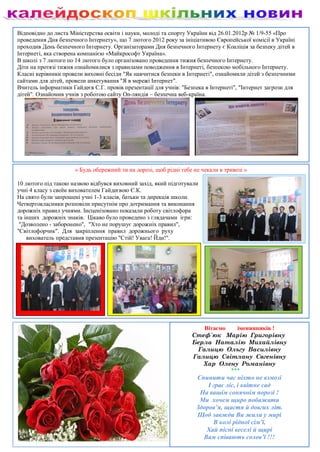Broadcom's VMware Deal: Significant Price Increase Raises AT&T Concerns

Table of Contents
The Details of Broadcom's VMware Price Increase
Following Broadcom's acquisition of VMware, a substantial price increase for several key VMware products has been implemented. This pricing strategy has sent ripples through the industry, leaving many questioning Broadcom's motives and the long-term consequences.
-
Specific Examples: While precise figures remain largely undisclosed due to individual contract negotiations, reports suggest substantial increases across VMware's vSphere, vSAN, and NSX product lines. Specific percentage increases vary depending on licensing agreements and customer history. Industry analysts suggest some customers have reported increases exceeding 20% for essential products. (Further research into specific public statements from affected customers would strengthen this point)
-
Broadcom's Rationale: Broadcom has attributed the price hikes to increased investment in research and development (R&D) and the integration costs associated with merging the two companies. They argue that these investments are necessary to enhance the products and provide customers with greater value. However, critics argue that this justification doesn't fully address the magnitude of the increases.
-
Impact on Existing Contracts: The impact on customers with existing VMware contracts varies widely. Some have reported facing immediate price increases upon renewal, while others are still negotiating revised terms. The lack of transparency in the new pricing structure has caused uncertainty and frustration among existing VMware customers.
-
Long-Term Pricing Strategy: The long-term implications of this pricing strategy remain unclear. Some analysts speculate that this could be a strategy to recoup the substantial investment Broadcom made in acquiring VMware, while others fear it signals a broader trend towards higher prices and reduced competition in the enterprise software market.
AT&T's Concerns and Public Response
AT&T, a major user of VMware's virtualization and cloud computing technologies, has publicly expressed its concerns regarding the steep price increases. The scale of its reliance on VMware products makes it particularly vulnerable to these changes.
-
AT&T's Official Statement: While AT&T hasn't issued a formal press release detailing its concerns, sources suggest that they've engaged directly with Broadcom to negotiate more favorable pricing terms and expressed their worries about the impact on their operational budget. (Confirmation of these interactions would be beneficial)
-
Financial Impact: The price hikes could represent a significant financial burden for AT&T and potentially impact their investment in cloud computing and digital transformation initiatives.
-
Regulatory Engagement: Given the scale of the price increases and their potential impact on the broader market, AT&T's actions might involve engaging with regulatory bodies to explore potential antitrust violations.
-
Alternative Solutions: In response to the price increases, AT&T may explore alternative virtualization and cloud solutions, potentially shifting its reliance away from VMware products. This could have wider implications for the market share of VMware and its competitors.
-
Broader Industry Anxieties: AT&T's concerns are likely representative of a wider anxiety within the industry. Many businesses rely heavily on VMware's products, and the price hikes could force them to reassess their IT budgets and strategic priorities.
Antitrust Implications and Regulatory Scrutiny
The substantial price increases following the Broadcom-VMware merger have raised significant antitrust concerns. This raises questions about the potential for reduced competition and innovation within the enterprise software market.
-
Potential Antitrust Violations: The steep price hikes could be seen as evidence of monopolistic practices, violating antitrust laws designed to protect competition. The argument is that Broadcom, having acquired a significant player in the virtualization market, is using its newfound market power to drive up prices.
-
DOJ and FTC Investigations: While no formal investigations have been publicly announced by the Department of Justice (DOJ) or the Federal Trade Commission (FTC), the significant price increases are likely to attract scrutiny from these regulatory bodies.
-
Impact on Competition: The merger and subsequent price increases could stifle competition in the virtualization and cloud computing markets, potentially hindering innovation and limiting choices for businesses.
-
Antitrust Precedents: There are several precedents where mergers resulting in significantly higher prices faced antitrust challenges. These cases provide a framework for understanding the potential regulatory response to Broadcom's actions.
-
Potential Remedies: If found to be in violation of antitrust laws, Broadcom could face various remedies, including divestitures, price controls, or even the unwinding of the VMware acquisition.
The Broader Impact on the Cloud Computing Landscape
The Broadcom-VMware deal and its resulting price increases have far-reaching implications for the entire cloud computing landscape.
-
Impact on Smaller Companies: Smaller companies and competitors in the virtualization market are likely to be disproportionately affected by these price increases, further consolidating market power in the hands of larger players.
-
Reduced Innovation: Reduced competition could stifle innovation as smaller companies struggle to compete against a dominant player with significantly higher pricing power.
-
Cloud Adoption Strategies: The increased cost of VMware products could impact businesses' cloud adoption strategies, potentially delaying or limiting their cloud migration initiatives.
-
Overall Cost of Cloud Services: The price increases for VMware products are likely to translate into a higher overall cost of cloud services for many businesses.
Conclusion
This article examined the significant price increases following Broadcom's acquisition of VMware, focusing on the concerns raised by AT&T and the potential antitrust implications. The price hike clearly highlights the complexities of large tech mergers and their impact on competition and consumer costs within the cloud computing and enterprise software markets. The situation underscores the need for vigilant regulatory oversight of such mergers to prevent the abuse of market power and maintain a healthy competitive environment.
Call to Action: Stay informed about the ongoing developments in the Broadcom-VMware deal and its ramifications for the future of cloud computing. Keep an eye out for updates on the antitrust investigations and the potential long-term impact on VMware pricing and competition in the enterprise software market. Continued analysis of the Broadcom VMware deal is crucial to fully understand its consequences.

Featured Posts
-
 Karim Bouamrane On Ne Recule Pas Face Aux Dealers Autour De L Ecole De Saint Ouen
May 27, 2025
Karim Bouamrane On Ne Recule Pas Face Aux Dealers Autour De L Ecole De Saint Ouen
May 27, 2025 -
 Nimechchina Ta 10 Krayin Nova Koalitsiya Reb Dlya Ukrayini
May 27, 2025
Nimechchina Ta 10 Krayin Nova Koalitsiya Reb Dlya Ukrayini
May 27, 2025 -
 23 Marzo 2024 Almanacco Santo Del Giorno E Curiosita
May 27, 2025
23 Marzo 2024 Almanacco Santo Del Giorno E Curiosita
May 27, 2025 -
 Man Receives 30 Years For Fatal Waffle House Shooting In Longview
May 27, 2025
Man Receives 30 Years For Fatal Waffle House Shooting In Longview
May 27, 2025 -
 Reliable Source Osimhen To Remain At Current Club Rejecting Premier League Offers
May 27, 2025
Reliable Source Osimhen To Remain At Current Club Rejecting Premier League Offers
May 27, 2025
